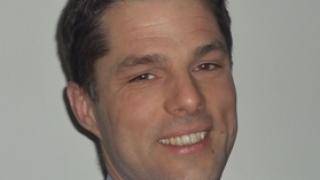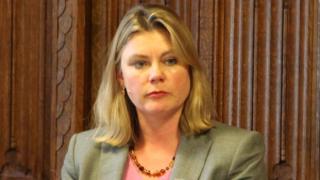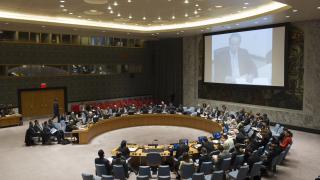
Governments around the world talk of the desirability of a nuclear weapons-free world, the only genuinely sustainable way of avoiding full-scale nuclear anarchy and the inevitable use of nuclear weapons. Nevertheless, there are people who believe that nuclear weapons have prevented war between larger states and that multilateral nuclear disarmament is misguided, but they are a small minority. Aren’t they?
So why do we find global nuclear disarmament so difficult? It’s not just because states are waiting for others to go first. There are issues of trust (and mistrust) between governments, such as verifying the various steps needed for disarmament, and attachment to the perceived international status that nuclear weapon possession can bring. There are protracted regional disputes, conflicts over resources and identities, and the very real fear that states will abuse their military superiority in other areas. You could say it’s a mess, crying out for solutions.
However, one characteristic of complex issues is that competing interests, objectives and viewpoints can generate more than enough so-called solutions. Adding more only complicates the situation further. The challenge is rather in finding improvements that work on common interests and attract sufficient support between conflicting groups. Quick fixes, or simple solutions, particularly those originating from the outside, tend only to deepen disagreements.
When approaching complexity, the temptation is to discover simplicity by ignoring the bigger picture, cutting out what you believe to be extraneous problems. But that doesn’t work. Instead, it pays to bring people together that represent a variety of perspectives in controlled, extended processes that enable participants to express their concerns and proposals, and explore ways through the morass, building trust along the way.
We at BASIC have attempted this approach to address the deeply entrenched positions over the future of the UK’s nuclear arsenal. In 2011, we set up the Trident Commission. We saw this as an opportunity to bring together representatives of the British establishment to consider how the UK could best contribute to global nuclear disarmament at this point while prioritising its national security, in the context of Trident renewal.
Our aim is to foster confidence in the possibility that the UK can find a balance that ensures there is faith in the efficient maintenance of its national security capabilities while encouraging more effectively the conditions for multilateral disarmament. Arguments that prioritise global security over British capabilities or status may appeal to certain internationalists but will not achieve sufficient support among domestic constituencies. They are also unlikely to be as convincing to other states as we would perhaps like to think, unless rooted in international processes.
But what does this actually mean for the domestic debate? What are the conditions for global disarmament and how can the UK best bring these about? We need to take this beyond rhetoric and establish an informed dialogue on what it means to pursue steps down the nuclear ladder.
In 2008, former UK Defence Secretary and current Trident Commission co-chair Des Browne initiated the so-called P5 process,1 which brings together the recognised nuclear-weapon states: China, France, Russia, the UK and US. Progress has been slow. Up to now, meetings have concentrated on foundation stones such as verification or a shared glossary of terms. But there are signs that confidence between the five states is growing.
The UK could use this process to open up focused discussion on the different dimensions of multilateral disarmament, such as:
- Tighter shared declaratory policies, such as committing to no first use • Bringing the Comprehensive Nuclear-Test-Ban Treaty into force (for which ratification by China, Egypt, India, Iran, Israel, North Korea, Pakistan and the US is needed).
- Adopting the proposed Fissile Material Cut-off Treaty, which seeks to prohibit the further production of materials for nuclear weapons, such as highly enriched uranium and plutonium.
- Moving to stability at lower numbers, how transparency measures and numerical limits could be negotiated, and what later stages would look like (such as virtual or threshold arsenals).
- How to universalise the process by bringing in India, Pakistan and Israel without undermining the Nuclear Non-Proliferation Treaty.
The process could also be used to consider a moratorium on nuclear modernisation programmes as a first step towards a genuine multilateral nuclear disarmament process, an idea promoted by former UNA-UK Vice- President Malcolm Savidge.
The UK – which must decide by 2016 whether to replace its Trident system if it is to be done without any gaps in patrols – needs to consider whether it really does need to replace its nuclear weapons. Because of the complexity of the decision, traditional arguments for and against replacement will not determine outcomes.
Those that remain attached to the current renewal plans need to answer better the question of how these plans can be achieved in a manner that retains sufficient flexibility for the UK to drive the international disarmament agenda. Those in favour of disarming unilaterally no matter what must recognise that placing the discussion firmly in the multilateral camp draws the sting from the debate and can open up more positive thinking. In providing leadership amongst among the nuclear-weapon states, how can we show that the UK is serious about those multilateral steps, and have things to offer at the disarmament table? And when will we be willing to give up the continuous patrolling of nuclear weapons if not now?
Among the recognised nuclear-weapon states, the UK, which has the smallest nuclear arsenal of the five, has established itself as being at the vanguard of disarmament – a position that has cross-party support. But maintaining this position requires continual movement on our part. Being complacent will not bring about the conditions for a world free of nuclear weapons. Asking the critical questions with a fresh perspective is perhaps where UNA members could have most impact in the coming debate.
Paul Ingram is Executive Director of the British American Security Information Council (BASIC)
1 Used as shorthand for the meetings, the name is misleading as it implies that these countries’ permanent membership of the Security Council is linked to their possession of nuclear weapons. In fact, when the Council was established just one of them – the US – had tested a nuclear weapon.












